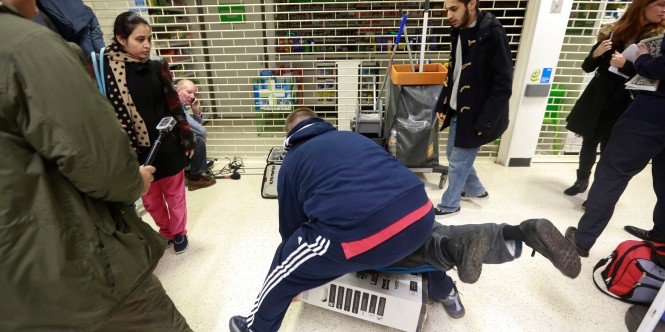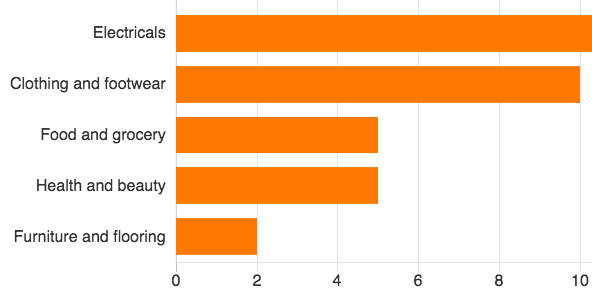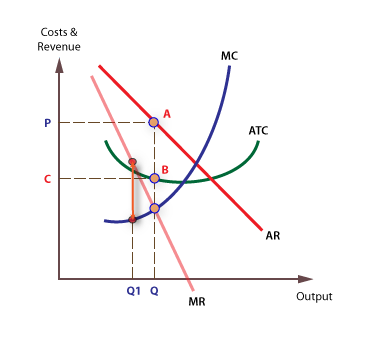
UK shoppers have rushed to buy Black Friday bargains, as retailers and payment firms report strong sales activity for the annual discount event. Barclaycard said it had seen a record number of transactions on Friday, while Argos, John Lewis and Currys PC World reported a surge in orders. Online retailers said initial figures indicated Black Friday, now into its third year, had topped expectations. We witnessed some crazy scenes in the past like at this ASDA (one step too far but across the pond it is even worse). But the question at Boardroom level is whether this is good for business. Here is my perspective in a debate that will go on for some years to come.
What is Black Friday?
Not sure how many people do know where it stems from. When my CEO asked me what it was called in France “Vendredi noir” I preferred to answer that all Fridays are black in France due to the amount of strikes happening at this time of year.
Black Friday is the day following Thanksgiving Day in the United States (the fourth Thursday of November). Since 1932, it has been regarded as the beginning of the Christmas shopping season in the U.S., and most major retailers open very early (and more recently during overnight hours) and offer promotional sales. Black Friday is not an official holiday, but California and some other states observe “The Day After Thanksgiving” as a holiday for state government employees, sometimes in lieu of another federal holiday such as Columbus Day. Many non-retail employees and schools have both Thanksgiving and the following Friday off, which, along with the following regular weekend, makes it a four-day weekend, thereby increasing the number of potential shoppers. It has routinely been the busiest shopping day of the year since 2005, although news reports, which at that time were inaccurate, have described it as the busiest shopping day of the year for a much longer period of time. Similar stories resurface year upon year at this time, portraying hysteria and shortage of stock
What are people looking for during Black Friday and potential psychological impact?

According to Retail Week, most consumers will be looking for electricals, as well as, clothing bargains. IMRG predicted that over £1.27bn would be spent.
Andy Webb, of the Money Advice Service, said: “A third of people felt pressure to spend more than they could afford during the whole of Christmas. That leads into debt.”
For some, this can have a serious impact on their wellbeing.
“Short-term discounts encourage consumers to purchase immediately, rather than reflecting on whether you really need to buy a product and if you can afford it,” said Katie Evans, head of research and policy at the Money and Mental Health Policy Institute.
“This can be particularly difficult for people experiencing mental health problems, who sometimes find it harder to resist impulses and might find that shopping makes them feel better, at least for a short while.”
The institute is calling for new rules to allow people to opt out of email marketing or to set a daily spending limit in online shops.
Is Black friday driving profits?
This is the question that has been going on for the last three years at Boardroom level.
Reasons to hate it:
Paul Martin, KPMG’s UK Head of Retail, said: “For retailers, it has always been questionable whether Black Friday really benefits them in the long-run, and in the current environment of rising costs and squeezed margins – perhaps it’s even more so.” I would agree that this is like taking drugs (analogy of course). Give your customers a shot to make them fill good but it has no lasting impact. Last night watching BBC news I saw Peter Ruis’s (CEO Jigsaw) interview, whereby he declared themselves Black Friday refuseniks. His main argument is “In fashion, over 50% to 60% of Black Friday purchases are returned. It stays in the supply chain two or three weeks, churns around and everyone’s lost the chance to sell it, and it just goes straight into the sale at 50% to 60% off. It is a double whammy: loss of profit, loss of margin, and that product just sitting around in supply chains”. Hard to argue against, right? Well not so sure, that is my opinion.
- Loss of profit and margins? It is all about volumes. Retailers have to work out their equilibrium point. If you manage to drive your revenue by having greater output at a bigger pace than you increase costs (which must include your returns costs). However, I do agree that you have a loss of margins, unless you buy products specifically for the occasion.

- Products just sitting in the supply chain. For me this is down to forecasting and being confident in your supply chain management. Very easy to write but damn complex to run.
- Negative brand impact. Discounting is never a happy recipe for brand reputations. it devalues your products. For an established brand, discounting can have an adverse affect on value. Quality and price do not exist as isolated concepts in consumers’ minds. They are interrelated. Research has shown that deep discounts do cause the consumer to believe that something is wrong. Frequent discounting serves to lower the value of the brand because of an almost subconscious reaction by the consumer who believes that quality also has been lowered. Or, in a “value rebound,” consumers begin to perceive the everyday price as too high. The brand is then bought only on deal.
Reasons to do it:
- Market share/share of wallet: Like any business person my aim is to increase volumes and drive costs down but the reality in a competitive environment is that it is very difficult to do either, especially if you have access to little innovation. Therefore, an event like Black friday is an opportunity worth recognising. It is even harder nowadays when you are not just competing against other high street players but arguably the all world (thank you ecommerce). I find it very difficult to argue against being part of black Friday. Not because I like it, but because if you don’t you become isolated and one or many of your competitors will jump in the space.
Conclusion
My question to businesses who don’t take part in Black Friday is whether they feel that their customers brand loyalty is that high that there is little risk of losing them to competitors (you must have high confidence in your product offering, pricing structure and channel distribution). If the answer is low risk then continue to sit outside but if the answer is high then I am afraid that as you read this post you will already be against it.
Now if you are a football club (low risk of switching allegiance), I would understand but even the likes of Apple answered no to this question and took part yesterday. We are talking of a premium brand with high loyalty customers.
The reality is that core customers only account for a small percentage of your database and, although the most precious segment (profit wise), how much additional incremental growth can you drive from them? Acquisition must be high on your agenda and you must invest and fight for it to grow your active database. Also recognise the channels dynamics. Your competitors are not based in a 40 miles radius, they are all over the world and are called Amazon, Zalando, etc.
Finally, you can’t ignore the macro economic factors. Inflation is kicking in and next year all imports will become more expensive. The pound is weakening and businesses have not hedged for the next 5 years.Therefore, as costs go up, businesses will be under pressure to increase prices, which will suppress demand (simple supply/demand economic model). Consumers are not ignorant to this fact and events like Black Friday can only grow in my opinion as people will be hunting for bargains.
Looking forwards to your opinions 🙂
Benoit Mercier